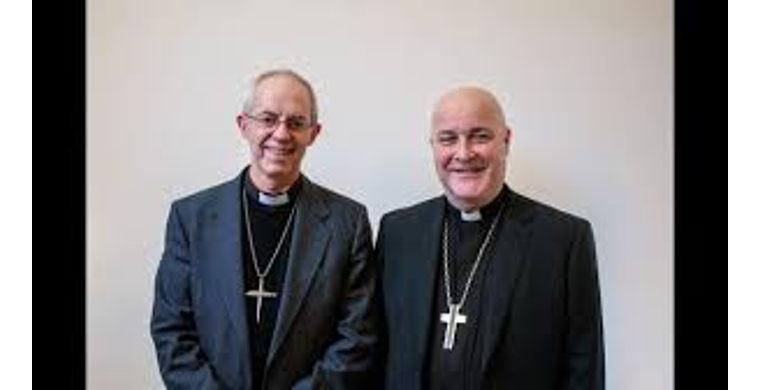The Church is digging its own grave and Welby and Cottrell are the chief gravediggers
By Melvin Tinker
Special to VIRTUEONLINE
www.virtueonline.org
May 5, 2020
A standard way of 'dissing' Christians used to be by claiming that they were 'too heavenly minded to be of any earthly use'. We now find ourselves in the bizarre situation where two of the Church's leaders have turned that saying on its head by publically demonstrating, to the despair of clergy and laity alike, that they are 'too earthly minded to be of any heavenly use', if their response to the present Covid-19 crisis is anything to go by.
Whilst the British government allows ministers to enter their own church building and even conduct a streamed service if possible, the Archbishop of Canterbury thought that didn't go far enough - all churches must be closed and the clergy kept out. If Vicars were to become concerned with their premises then, his Grace advised his clergy, 'A pair of binoculars can be helpful in assessing the building'.
The nominated Archbishop of York, Stephen Cottrell, also saw no need for church buildings to be open or used, unlike the local supermarket. After all, he reasoned, while he needed to go to the local store for food, he didn't need to go to church for God because God 'makes house calls', and there is a direct connection from 'God's heart' to his. In saying this he simply confirmed what Joe Public has thought all along - 'Who needs to go to church to be a Christian?' This is also the bishop who forbad his clergy from visiting the sick in hospital, even if they were to be provided with PPE.
What all this amounts to is the church leadership, lemming like, accelerating the process which has been happening in the West for well over a century- secularisation.
Peter Berger defines secularisation as, 'The process by which sectors of society and culture are removed from the domination of religious institutions and symbols.' That is, this is a movement of change which takes place through the structures of society, especially the spheres of science, technology, bureaucracy and the media, which results in religious ideas becoming less meaningful and religious institutions more marginal. Of course, there is a subjective/intellectual side to secularisation, what is sometimes called the 'modern mentality' described by Harvey Cox as, 'Man turning his attention away from worlds beyond and towards this world and this time (the saeculum).'
There are a number of features of the secularisation process.
The first is what Max Weber calls rationalisation. This refers to religious ideas becoming less and less meaningful and religious traditions becoming more and more marginal as they are replaced by other modes of thinking and traditions. With the advance of modernity less space is reserved for God. Practically, this means if you are ill you call a physician not a priest. Thanks to Welby and Cottrell you wouldn't be able to call a priest even if you wanted to.
This in turn results in what Weber calls disenchantment, (entzauberung),where the 'magic' or 'mystery' of life is not just removed but unwanted, we simply apply reason and technology with the consequence that matters of faith are deemed irrelevant. This modernist outlook is summed up by the social scientist, Philip Rieff, "What characterises modernity, I think, is just this idea that men need not submit to any power - higher or lower -- other than their own.' By failing to put the case to the government that clergy should be considered to be essential workers necessary for the spiritual wellbeing of the populace, as Bishop Nazir Ali has argued, Welby and Cottrell have provided more grist for the mill of secularisation.
The long-term effect of Weber's rationalisation is not simply that Christianity is considered to be untrue, but is thought to be meaningless. When the church is strong in terms of its influence then it will at least seem to be true and therefore relevant. Conversely, when it is weak, it will appear to be untrue and irrelevant. The actions of the present Church of England leadership have weakened the standing of the church to an all-time low. Who will be able to take the Church of England seriously after Covid 19 (assuming people had started to take it seriously in the first place)?
The process (secularisation) relates to the philosophy (secularism), by providing the ideal environment in which the latter can flourish almost unchallenged. If the British Secularist Society is in the habit of handing out awards for those who have excelled in promoting their cause, there are two names they should consider above all others Welby and Cottrell. This is what happens when a Church leadership is largely composed of managers of spin rather than ministers of the Gospel.
The Rev. Melvin Tinker is Vicar of St John Newland since 1994, Melvin read Theology at Oxford University and trained for ordination at Wycliffe Hall. As well as speaking around the country and abroad, Melvin is the author of over sixty published articles dealing with a wide range of subjects relating to ethics and theology. He is also the author of several books.














